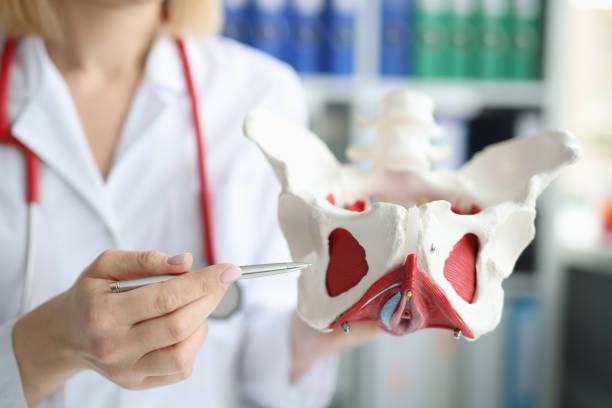Wellness isn’t just about the absence of disease; it’s a dynamic state of thriving physically, mentally, and emotionally. A crucial but often overlooked aspect of wellness is pelvic health. Understanding this vital area can significantly enhance your overall well-being. Let’s dive in!
What is Pelvic Health?
Your pelvic floor is a group of muscles and tissues that support your bladder, bowel, uterus (if you have one), and other pelvic organs. Pelvic health encompasses the optimal functioning of these muscles and organs, playing a significant role in your overall wellness.
Why Pelvic Health Matters
Pelvic floor dysfunction can manifest in various ways, impacting multiple areas of your life:
- Incontinence: Difficulty controlling bladder or bowel movements.
- Pelvic Organ Prolapse: When pelvic organs descend due to weakened muscles.
- Painful Intercourse: Discomfort during sex can be a sign of pelvic floor issues.
- Chronic Pelvic Pain: Persistent pain in the lower abdomen.
Good pelvic health, however, is essential for a full, vibrant life. It contributes to sexual enjoyment, healthy bladder and bowel function, and core stability.
The Wellness Connection
Wellness is a multi-faceted concept. Here’s how pelvic health fits into the bigger picture:
- Physical Wellness: Strong pelvic floor muscles support posture, core strength, and athletic performance.
- Emotional Wellness: Pelvic dysfunction can impact self-esteem, confidence, and intimacy. Addressing these issues promotes emotional well-being.
- Mental Wellness: Chronic pain and health concerns associated with pelvic health can lead to stress, anxiety, and even depression.
Taking Care of Your Pelvic Health
Here are ways to enhance your pelvic health and overall wellness:
- Pelvic Floor Exercises (Kegels): Strengthening your pelvic floor muscles is fundamental for good pelvic health.
- Pelvic Floor Physical Therapy: A specialized therapist can help guide you through exercises, address specific issues, and provide personalized care.
- Stress Management: Stress can exacerbate pelvic floor dysfunction. Practice relaxation techniques like yoga, meditation, or deep breathing.
- Healthy Diet and Hydration: A balanced diet and sufficient water intake support digestion and overall health – including pelvic health.
- Posture and Body Mechanics: Good posture and proper lifting techniques can help protect your pelvic floor.
Additional Considerations
- Regular Checkups: Consult with your doctor or a pelvic health specialist for regular assessments.
- Hormone Health: Hormonal imbalances, especially during menopause, can affect pelvic health. Seek medical advice if needed.
The Wellness Takeaway
By prioritizing pelvic health, you’re investing in a fundamental aspect of your overall well-being. If you’re experiencing any symptoms of pelvic floor dysfunction, don’t hesitate to seek help. With proper care and attention, you can unlock greater physical, emotional, and mental wellness.
Remember: Wellness is a journey, not a destination. By embracing a holistic approach and giving pelvic health its due importance, you can achieve a healthier, happier, and more fulfilling life.
Conclusion:
Wellness is within your reach. By understanding the vital connection between pelvic health and your overall well-being, you’ve taken an important step. Embrace the tips in this article, listen to your body, and seek professional help if needed. Remember, small changes can lead to significant improvements over time. Prioritizing your health and wellness, including pelvic health, will open you to a life of greater vitality and joy.









